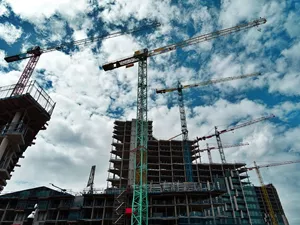New Buenos Aires Provincial Regime for Strategic Investments
The Regime promotes investment by granting tax incentives to health, natural resources, manufacturing services, and cultural industries.

Provincial Law 15510 was published in the Official Gazette of the Province of Buenos Aires on November 27, 2024, creating the Provincial Regime for Strategic Investments (RPIE), which will apply throughout the province. The province created this regime instead of joining the Incentive Regime for Large Investments (RIGI), created through Federal Law 27742.
The RPIE’s most salient features include:
1. Subjects
The following subjects can apply to the RPIE:
1. Legal entities incorporated in Argentina or qualified to carry out activities in Argentina.
2. Temporary unions, collaboration groups, and cooperation consortia.
Those who have enforceable real estate tax, turnover tax, vehicle tax, and stamp tax debts, either as taxpayers or collection agents, cannot apply to register.
2. Projects achieved
The investment projects must be related to these categories:
1. manufacturing industry,
2. services,
3. cultural industries,
4. health,
5. natural resources (intensive).
In addition, investment projects in these sectors must consist of:
1. new plants,
2. expansion of existing plants or facilities if they increase the theoretical production capacity by at least 30% without reducing employment,
3. new production processes, if the investment exceeds 30% of the existing fixed assets and does not reduce employment.
In turn, projects must commit a minimum investment of more than USD 5,000,000.
The Law empowers the provincial Executive to include in the regime those investment projects it declares of strategic interest for the province.
3. Conditions of permanence
The condition to remain registered in the RPIE is the investment percentage of the committed amount over a certain period of time. The percentage and time depend on the amount of the committed investment:
1. More than USD 5,000,000 and up to USD 50,000,000: minimum investment of 40% within the first 3 years.
2. More than USD 50,000,000: minimum investment of 40% within the first 2 years.
4. Application
The deadline for applying is two years since the regulation of the law becomes effective. There are requirements relating to the investment plan that must be included in the application. These are, among others, the estimated volume of production or services rendered and the projected volume of exports and imports.
Further, certain documentation listed in the law must be attached, including:
1. Technical study establishing the foreseeable impact of the investment project on the local market and the productive structure of the sector.
2. Projected direct and indirect creation of employment in the province.
3. Proposal for a provincial supplier development plan if the investment exceeds USD 50,000,000: at least 50% of the investment amount must be allocated to contracting suppliers located in the Province of Buenos Aires.
4. Action plan for promoting gender equity in the workplace.
5. Environmental plan for the development of the project.
5. Tax Incentives
5.1. Partial exemption from real estate tax, turnover tax, stamp tax
The exemptions have the scope indicated in this section and apply only to the assets related to the investment project, to the income obtained in its execution, and to the contracts related to it.
5.1.1. Basic partial exemption
| Investment amount | Duration of exemption (in years) | % of exemption |
| More than USD 5,000,000 and up to USD 50,000,000 | 5 | 30% |
| More than USD 50,000,000 and up to USD 200,000,000 | 4 | 25% |
| More than USD 200,000,000 | 3 | 20% |
5.1.2. Increased partial exemption
If some of the following conditions are complied with, certain percentages and a certain number of years are added to the basic partial exemption:
| Conditions | Additional years of exemption | % additional of exemption |
| Employment increase | 2 | 10% |
| Location: low-income areas /industrial parks | 2 | 10% |
| Imports substitution | 2 | 10% |
| Technological innovation | 2 | 10% |
| Increase in exports | 1 | 5% |
| Gender policy | 1 | 5% |
| Environmental sustainability | 1 | 1% |
5.1.3. Maximum partial exemption (considering the conditions that increase the basic exemption)
| Investment amount | Duration of exemption (in years) | % of exemption |
| More than USD 5,000,000 and up to USD 50,000,000 | 15 | 65% |
| More than USD 50,000,000 and up to USD 200,000,000 | 14 | 60% |
| More than USD 200,000,000 | 13 | 55% |
5.2. Tax Stability
From the date of notification of the application request approval and during the years the partial exemption benefit is valid, the tax burden corresponding to the turnover tax and stamp tax will not be increased over that in force at the time the application request was approved.
The Law empowers the enforcement authority to extend the tax stability benefit up to 30 years for projects involving an investment of more than USD 200,000,000.
6. General provisions
The RPIE will become operative once the Law is regulated and the enforcement authority issues complementary regulations. The enforcement authority is the Ministry of Production, Science, and Technological Innovation of the Province.
Finally, this Law repeals the Industry Promotional Regime created through Law 13656, except for those subjects that already included in it.
This insight is a brief comment on legal news in Argentina; it does not purport to be an exhaustive analysis or to provide legal advice.